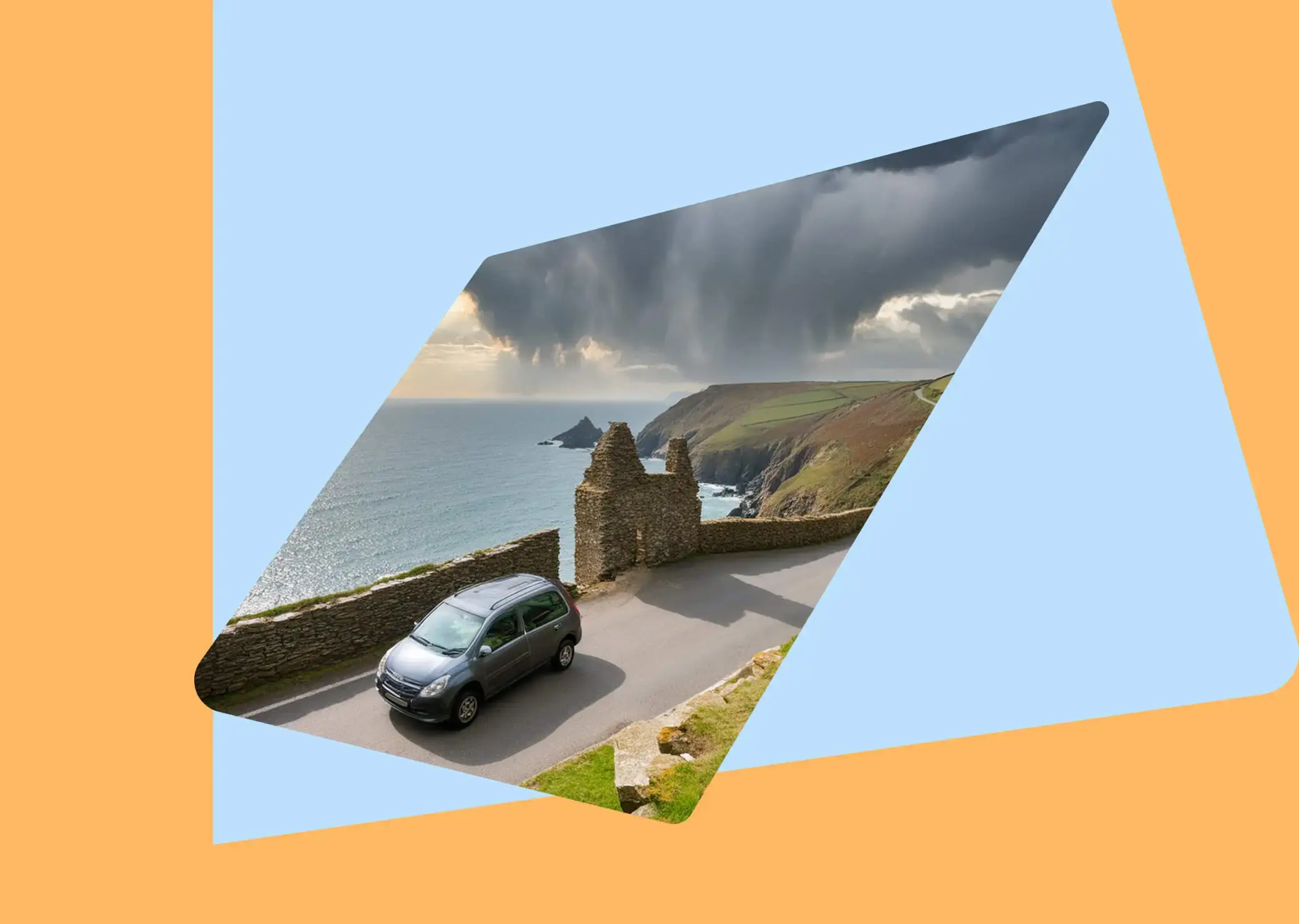- Carmoola
- Blog
- Car Finance
- Can I buy a car on a credit card?
- 🗞 Car Finance
- Last updated: May 1, 2024
- 4 Min Read
Can I buy a car on a credit card?
Written by

Verified by


See how much you can borrow in 60 seconds
| Representative Example | |
|---|---|
| Loan amount | £10,000 |
| Interest rate | 13.9% APR |
| 54 payments of | £246 |
| Total cost of credit | £3,284 |
| Option to purchase fee | £1 |
| Total payable | £13,285 |
From the weekly shop to a splurgey holiday abroad, you can buy almost anything with a credit card, but what about a car? The simple answer is yes, but it does depend on the dealership. Some will happily accept credit cards, while others may only allow card payments for deposits. There are a few factors to consider before you go shopping, like dealer policies, card fees, and transaction limits. Let’s walk through the benefits and potential risks of using a credit card to buy your car.
Pros of using a credit card
0% interest offers
Some credit cards come with 0% APR for a set period, letting you pay off your car without any interest for a while.
Rewards & cashback
Many credit cards offer rewards, cashback, or even air miles on big purchases, so you could earn a little bonus while buying your car.
Extra consumer protection
Thanks to Section 75 of the Consumer Credit Act, any car purchase between £100 and £30k is protected, offering you added peace of mind.
Flexibility
Unlike traditional finance agreements, using a credit card could give you more freedom since you're not tied to a long-term contract.
Cons & risks of using a credit card
High interest rates
If you don’t pay off your balance before the 0% interest period ends, you might face much higher rates than car finance options.
Credit limits
Many credit cards have limits that might not cover the full price of the car, meaning you might need to split the cost across multiple payments.
Dealer fees
Some dealerships charge a fee of 2-3% for credit card payments, which can add to the overall cost of your car.
Impact on Your Credit Score – A large purchase can increase your credit utilisation, which might affect your credit score.
How to use a credit card safely for a car purchase
If you’re planning to make your car purchase on a credit card, there are some things you should do to keep yourself safe. Always check the dealership’s payment policies first to make sure that they accept credit card payments. Be mindful of your credit limit, and avoid maxing it out, as that can hurt your credit score. You might also want to look for any available 0% interest deals, and think about the amount of time you’ll need to make your repayments for. Finally, it’s a good idea to compare your total costs with a credit card against traditional car finance options; a PCP, HP, or bank loan could work out more cost-effective in the long run.
FAQs about financing a car with a credit card
Is it better to use a credit card or a car finance loan?
Is it better to use a credit card or a car finance loan?
The best way to buy a car depends on your personal priorities, budget, and financial situation. A credit card may be a good option if you have a high credit limit, qualify for a 0% interest rate, and can pay off the balance before higher rates apply, especially if your card offers rewards. Alternatively, car finance options like HP or PCP might suit you better if you have a low credit score, prefer set monthly payments, or want the flexibility to return the car without ownership.
What happens if I don’t repay my credit card balance in full?
What happens if I don’t repay my credit card balance in full?
If you don't repay your credit card balance in full, you'll be charged interest, late fees, and your credit score may be negatively impacted. You can also lose any interest-free periods.
Does using a credit card for a car purchase affect my credit score?
Does using a credit card for a car purchase affect my credit score?
Using a credit card to buy a car can impact your credit score if you’re not careful. If you carry a balance, it can raise your credit utilisation ratio, which plays a big role in your score. Failing to pay off the balance on time could lead to high interest and hurt your credit rating.
See how much you can borrow in 60 seconds
| Representative Example | |
|---|---|
| Loan amount | £10,000 |
| Interest rate | 13.9% APR |
| 54 payments of | £246 |
| Total cost of credit | £3,284 |
| Option to purchase fee | £1 |
| Total payable | £13,285 |
Related articles
PCP vs HP car finance: what's the difference and which is better?
When you're choosing between a PCP or HP car finance, the decision often depends on whether you prefer lower monthly payments or...
How to refinance your PCP balloon payment
Choosing to refinance a balloon payment on your PCP finance agreement replaces that intimidating lump sum with monthly payments....
What to do if your car on finance is broken beyond repair
Your car’s dead, the repair bill’s sky-high, or insurance has called it a write-off. But the finance payments? Still ticking...

.webp?width=832&height=592&name=customer-support%20(1).webp)












.webp?width=400&height=285&name=online-shoppers-with-dog%20(1).webp)


.jpg?width=500&height=356&name=Vintage%20car%20going%20to%20an%20old%20town-1%20(1).jpg)





